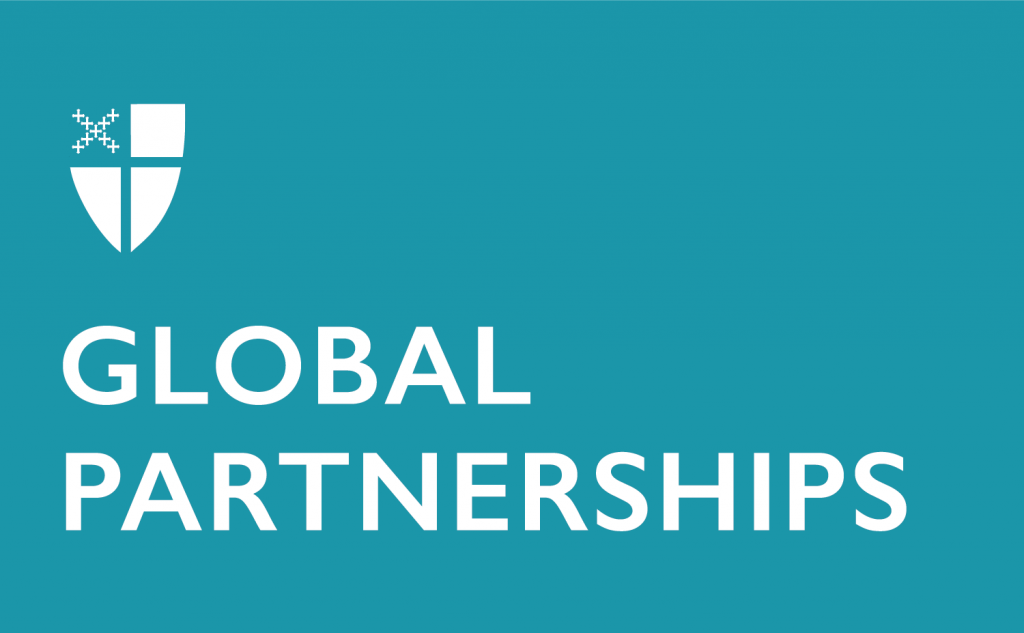Haiti: A Place of Gender-Based Violence
Our guest bloggers today are the Rev. Canon Rosemari Sullivan, who is a Special Coordinator for Haiti in the Office of the Presiding Bishop, and Guilene Fiefie, a delegate to the 2014 United Nations Commission on the Status of Women from the Diocese of Haiti. This post begins with an introduction from Rosemari and continues with a very thought-provoking reflection from Guilene.
As a partner of the Diocese of Haiti in the work of rebuilding, I am grateful to my colleague Guilene for her report focusing on the issue of rape in the camps and poorest settlements in Haiti. There are many courageous women working in and through groups that seek to address all aspects of sexual violence in Haiti. In my visits to Haiti, I have visited with the MUDHA organization in the Leogane area. This is an organization established in 1985 in the Dominican Republic to aid Haitian women and children working in the Dominican Republic. After the earthquake in 2010 the founder of the organization Sonia Pierre travelled to Leogane and immediately began working with the orphaned children and women in the Camps. It is part of the overall tragedy that gender based violence has increased in Haiti despite the efforts of organizations like MUDHA.
My colleague rightly notes that lack of women in the police force. This is complicated by the fact that there are simply an insufficient number of police. The response to rape requires special training for all the responders; hospitals, clinics, police and victims. There are groups seeking to make systemic change in Haiti. However, this is difficult in a place as volatile and poor as Haiti.
It is my hope that all of the Church communities in Haiti will begin to address this systemic evil and offer positive support to victims.
– The Rev. Canon Rosemari Sullivan
Since I do not know of any specific cases of gender violence in the community where I am living now and I do have any personal experience of it, I would like to talk about something which is very prominent in Haiti now: Rape. This continues at a high rate, especially among the people leaving under the tents after the earthquake that happened in January 2010. Gender violence manifests itself in different forms. For instance, in addition to rape we also know that there is sexual harassment, which includes many forms. My aim in this article is to share some recent cases of gender violence, mostly regarding rape, I heard from the news regarding the people who are still living in tents in Port-au-Prince, the capital of Haiti.
Rape is like a huge iceberg in Haiti. The police officers are not able to overcome it. Girls and women are not safe and many have been raped due to the lack of security. This is a very dramatic situation because of reports that the police are a waste of time since the police officers are not able to identify the criminals.
Camp conditions make it easy for predators to take advantage of women and girls. They operate late at night when they think that people are sleeping. The main factors of this phenomenon are the lack of lighting, not having well-constructed houses, the lack of police presence, and, in some cases, the carelessness of police officers. What makes rape one of the worst gender-based crimes that we have had in Haiti is the fact that it affects mostly teenage girls under fourteen. Some of them are orphans. They have lost their parents and they do not have a safe place to sleep.
The victims range from children of five years of age to adults of sixty-two according to the national Haitian radio and TV (RTNH). Most of the victims are raped by two or more assailants. The criminal are armed with guns, knives, and other weapons. Since they are unable to identify the attackers, some people believe that they are gang members from the poorest place in the city named “Cite Soleil” (the city of Sun). Another group of people believes that they are prisoners who have escaped from the prison who have not been recaptured by the authorities. Recently, one woman was courageous to report to the “Metropole” radio station that some unknown men took her to a house in an unknown location and they raped and repeated beat her for three days before she had a chance to escape.
The lack of female police officers is also a big issue. Women are generally unwilling to report rape or domestic violence to men, notably when they’re mocked, treated dismissively, and, at times, blamed or accused of promiscuity. As a result, authorities downplay the issue, allocate few resources, and help the rich and not the vulnerable Haitians who are out of luck and on their own. This leaves the rapists free to seek other victims or the same ones again.
In brief, if we are to secure women’s rights and their freedom from violence, it is imperative that we adopt an integrated human rights perspective that stresses the equal importance of civil and political rights and economic and social rights. Tracking down gender violence mostly depends on the government’s duties. However, the church can play a role by encouraging the government to make laws regarding women’s right and to punish the criminals. We have a long way to go to help women to live in freedom. I hope one day Haiti will have a government that is not careless regarding human rights.
We give thanks for Guilene’s willingness to speak out about gender violence in Haiti and for Rosemari and all those around the church who continue to walk with Haiti.

